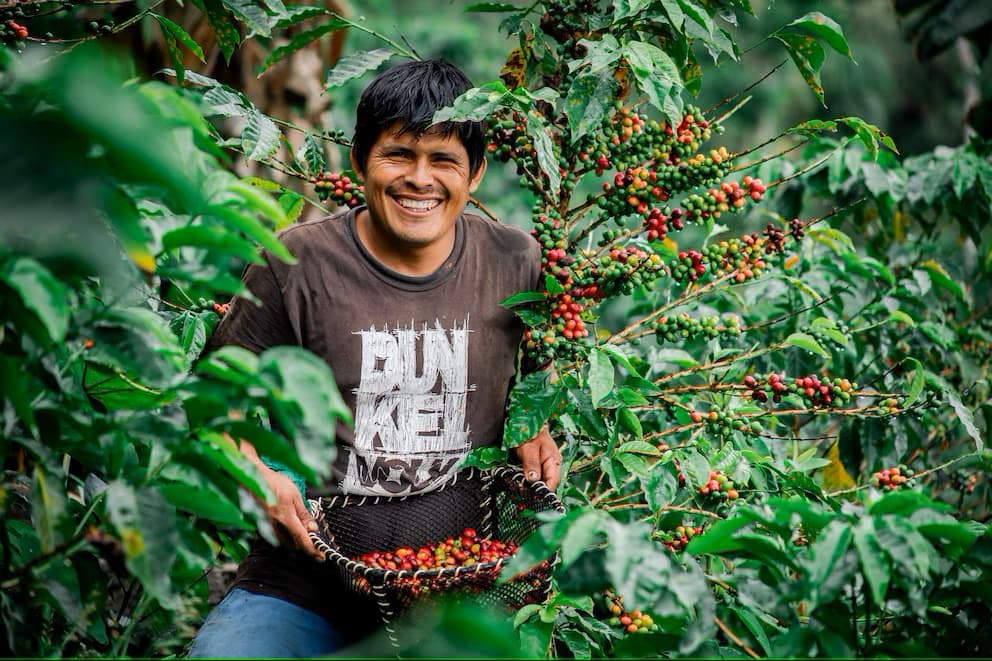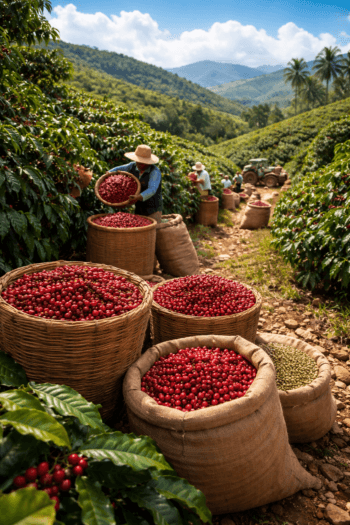Peruvian coffee has expanded its reach to 58 international markets, solidifying its position as a leader in organic coffee exports and establishing a strong presence in key markets like the United States and Germany. Despite this global success, domestic coffee consumption remains among the lowest in the region.
A Record Year for Peruvian Coffee Exports
In 2024, Peruvian coffee strengthened its position as one of the country’s most important agricultural exports. According to the Ministry of Agricultural Development and Irrigation (Midagri), international sales of coffee reached approximately $1.1 billion, marking a 30% increase from 2023’s $827.3 million. This makes 2024 the second-best year in the past decade, trailing only 2022’s record $1.224 billion.
Peruvian coffee is now exported to 58 countries, with the United States, Germany, Belgium, Canada, and Sweden being key markets. Renowned for its quality and diverse flavor profiles, Peruvian coffee has earned a prestigious spot in global gastronomy. Peru is also recognized as the world’s leading exporter of organic coffee, alongside Ethiopia, and ranks 10th globally in conventional coffee exports, behind industry giants like Brazil, Vietnam, and Colombia.
Rising Prices and Global Demand
The surge in coffee exports was fueled by higher international coffee prices. The International Coffee Organization (ICO) reported a 70.4% increase in its composite indicator price during the 2023/2024 coffee year, rising from 151.94 cents per pound in October 2023 to 258.90 cents in September 2024.
This price hike was driven by several factors, including weather irregularities that disrupted production in other coffee-producing nations and growing global demand, particularly in non-producing markets such as Japan and China. Peruvian green coffee exports, the country’s primary commercial format, met these demands, further consolidating Peru’s role as a key player in the international market.
The Wealth of Peruvian Coffee
Peru produces coffee across 16 regions, spanning 427,000 hectares. Major coffee-growing areas include San Martín, Cajamarca, Junín, Cusco, Amazonas, Huánuco, and Pasco, with additional contributions from northern regions like Piura, La Libertad, and Lambayeque. Coffee in these areas is cultivated at elevations between 800 and 1,950 meters above sea level, contributing to its unique characteristics.
Peruvian coffee varieties such as Caturra, Typica, Bourbon, Catimor, Pache, and Geisha are internationally acclaimed for their quality. Notably, the Tunki coffee from Puno was recognized as the world’s best specialty coffee at the 2010 Specialty Coffee Association of America (SCAA) Expo.
Beyond being a major source of foreign currency, the coffee sector is vital for Peru’s rural economy. Over 85% of coffee producers are small-scale farmers working on plots ranging from one to five hectares. The industry provides direct and indirect employment to more than two million people, from cultivation to exportation.
Challenges and Goals for the Sector
Despite thriving exports, Peru’s domestic coffee consumption remains low compared to other countries in the region. According to Midagri, the annual per capita coffee consumption is just 1.2 kilograms, significantly lower than Colombia’s 2.5 kilograms and Brazil’s 6 kilograms. To address this, the ministry aims to increase domestic consumption to 1.5 kilograms per person by 2025 through promotional campaigns, including fairs and competitions.
Additionally, Midagri has identified the need to strengthen cooperatives among coffee farmers. Currently, only 30% of producers are part of cooperatives, which limits their ability to negotiate better terms and access financing. Addressing this gap is crucial for improving the industry’s overall resilience and profitability.
With its rich coffee heritage, expanding global reputation, and targeted domestic initiatives, Peru is poised to further solidify its standing as a powerhouse in the coffee industry.

